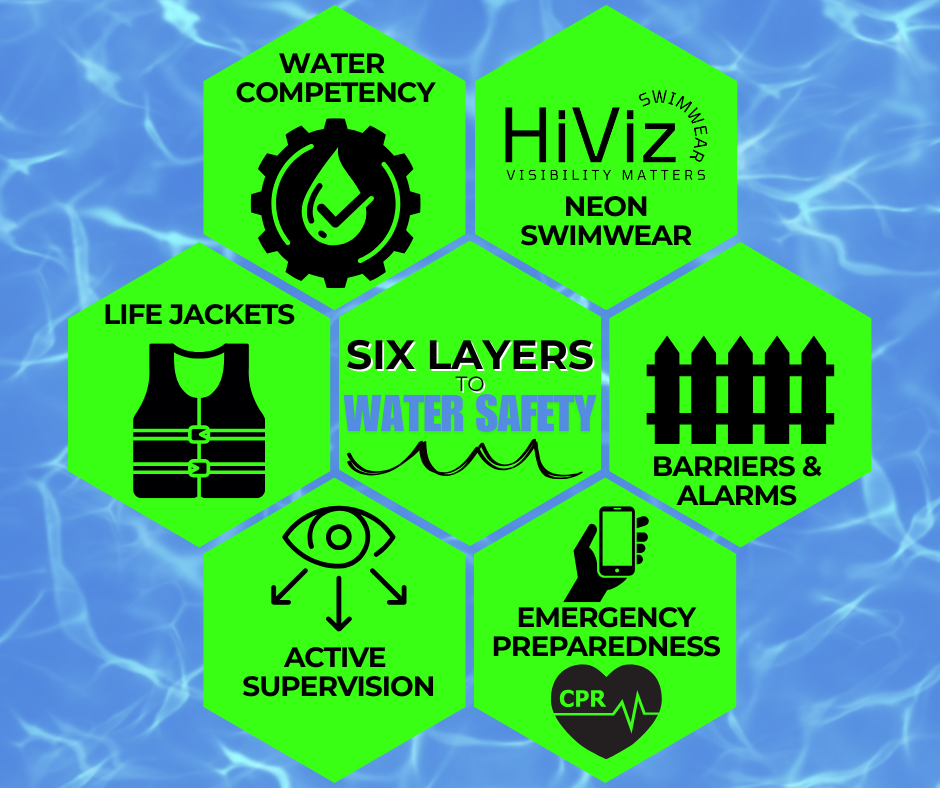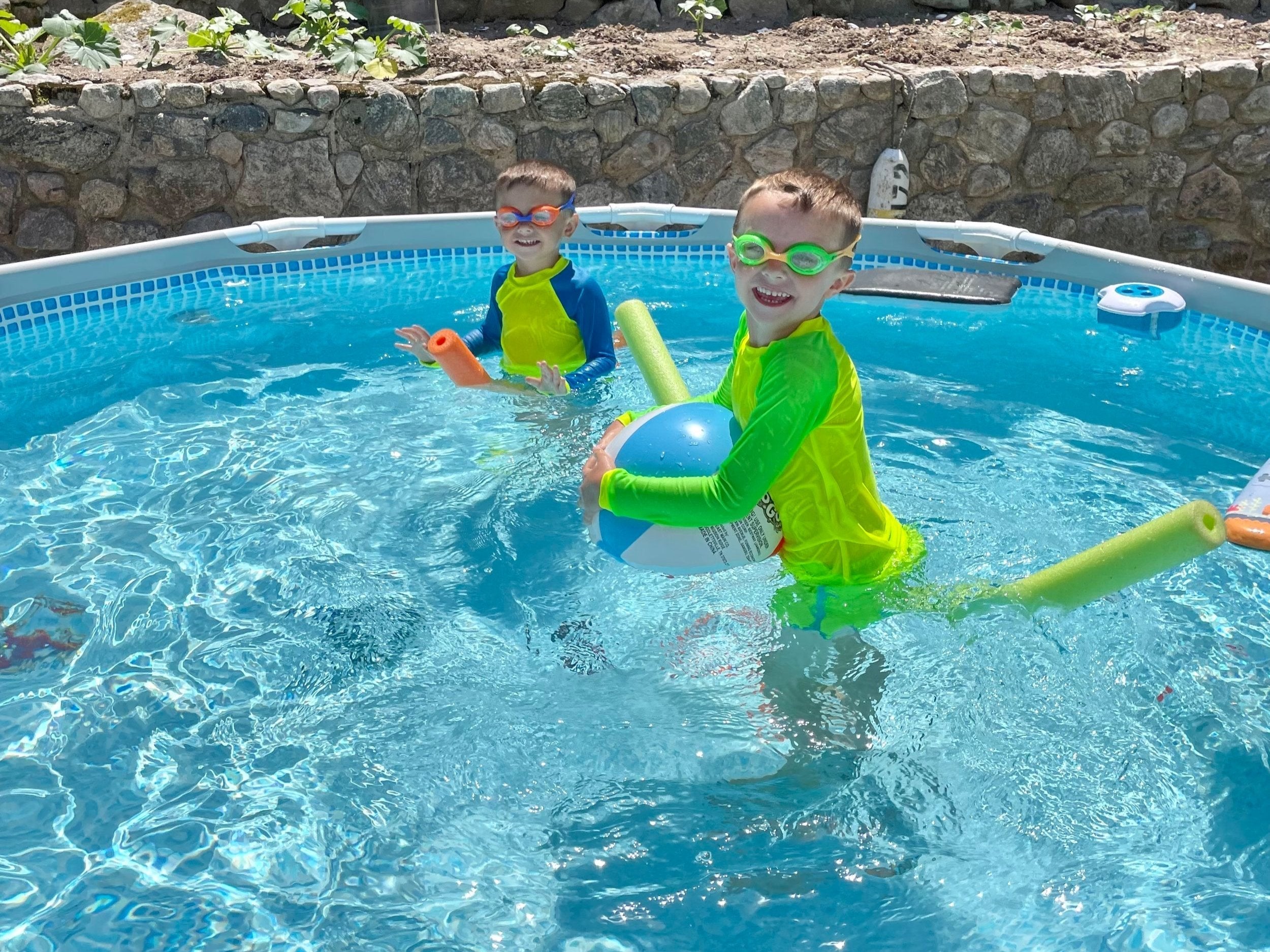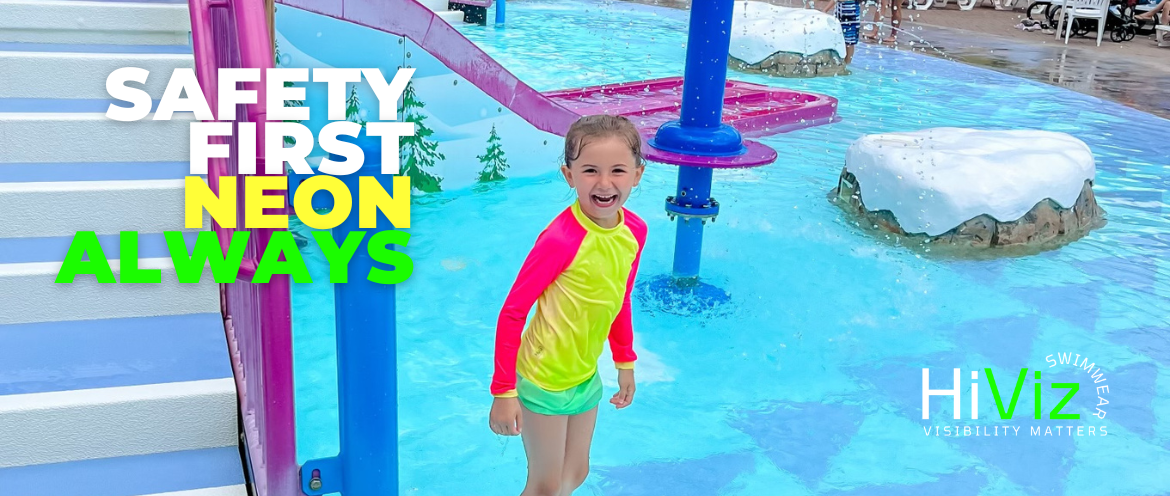Why Water Safety Matters—More Than You Think
Drowning is one of the leading causes of accidental death in children —and yet, it often goes unnoticed until it’s too late. Why? Because drowning doesn’t look like it does in the movies. There’s no yelling, no flailing. It happens silently, quickly, and even in shallow water. We created this guide to share the knowledge, tools, and visibility strategies you need to create a safer swim environment—whether you’re at the pool, lake, beach, or even the bathtub.
What Drowning Really Looks Like (and why it's easy to miss)
Most people imagine drowning as loud, dramatic, and easy to spot—like in the movies. In reality, drowning is fast, quiet, and often completely silent. This misunderstanding is one of the biggest reasons drownings happen under adult supervision.
Here is what drowning really looks like:
1. No Crying for Help
The airway is underwater or just above it—so the person can’t call out.
Breathing takes priority over yelling.
2. No Flailing or Splashing
Drowning people don’t have the ability to wave for help.
Their arms instinctively press downward to try to lift their mouth out of the water.
3. Head Tilted Back, Mouth Open
The person may appear to be “looking up,” with mouth open, trying to gasp.
You might only see the top of their head or face momentarily above water.
4. Vertical Position
The body stays upright, but there’s little or no leg movement.
It may look like the person is “treading water” or playing—but they’re not.
5. Silent Struggle (20–60 Seconds)
Drowning can happen in as little as 20 seconds for children.
No screaming. No dramatic thrashing. Just a person quietly slipping under.
Drowning: What to Watch For
-A child who suddenly becomes very quiet in the water
-A swimmer who appears glassy-eyed or unresponsive
-A person struggling to stay afloat or bobbing under and re-emerging
-Someone floating face-down too long, especially a child
-Children near water without splashing or playing
Shocking Drowning Statistics
It’s the #1 cause of accidental death for children aged 1–4.
88% of child drownings happen with at least one adult present.
Drowning can occur in under 30 seconds.
The Layers of Water Safety

Active Supervision
- Always keep eyes on the water.
- Stay close, alert, and undistracted.
- Designate a Water Watcher and hand off duties every 15 minutes.
Barriers & Alarms
- Use self-closing pool fences, door locks, and water alarms to prevent unsupervised access.
Emergency Preparedness
- Know CPR.
- Keep rescue tools nearby.
- Have a phone close in case of emergency.
Life Jackets
- Use U.S. Coast Guard-approved life jackets for non-swimmers and during open water activities.
- They provide buoyancy and help keep heads above water in emergencies.
- Should not be used as a learn to swim device. If they can’t swim, you need to go in.
High-Visibility Neon Swimwear
- Bright, contrasting neon swimwear makes swimmers easier to see in every water condition.
- Avoid blues, greys, and muted pastel tones.
- Non-bright patterns will also decrease the visibility of the swimwear.
Water Competency
- Enroll children in age-appropriate swim lessons, but remember: strong swimmers still need supervision.
Why Your Child’s Swimsuit Color Matters
Most drownings happen within seconds. High-visibility swimwear gives you those
seconds back by helping your child stand out & be seen during emergencies.
Underwater, blues and dark colors blend in, while HiViz colors pop—even in low light or
murky water.

ALIVE Solutions Inc., a water safety organization, conducted a study examining how swimsuit color and pattern affect visibility in aquatic environments. The research aimed to inform parents and caregivers about optimal swimwear choices to enhance safety.

Key Findings:
Neon Colors Enhance Visibility: Bright
neon hues—such as yellow, green,
orange, and pink—were most visible in
both pools and open water. These
colors stood out against various
backgrounds, making swimmers easier
to spot.
Poor Visibility of Certain Colors:
Swimsuits in white, light blue, and dark
colors like navy or black tended to
blend into the water, especially in pools
with dark bottoms or natural bodies of
water, reducing swimmer visibility.
Impact of Patterns: Large, dark patterns on swimsuits decreased visibility, whereas small patterns had minimal effect. Solid neon-colored swimsuits without large patterns were deemed most effective for visibility.
The study underscores the importance of selecting high-visibility swimwear as a proactive measure to improve swimmer safety. While bright swimwear enhances visibility, it should complement other safety practices like active supervision, use of life jackets, and swimming lessons.
For more detailed information, you can visit ALIVE Solutions' official website:
Free Downloadable Water Watcher Guide




